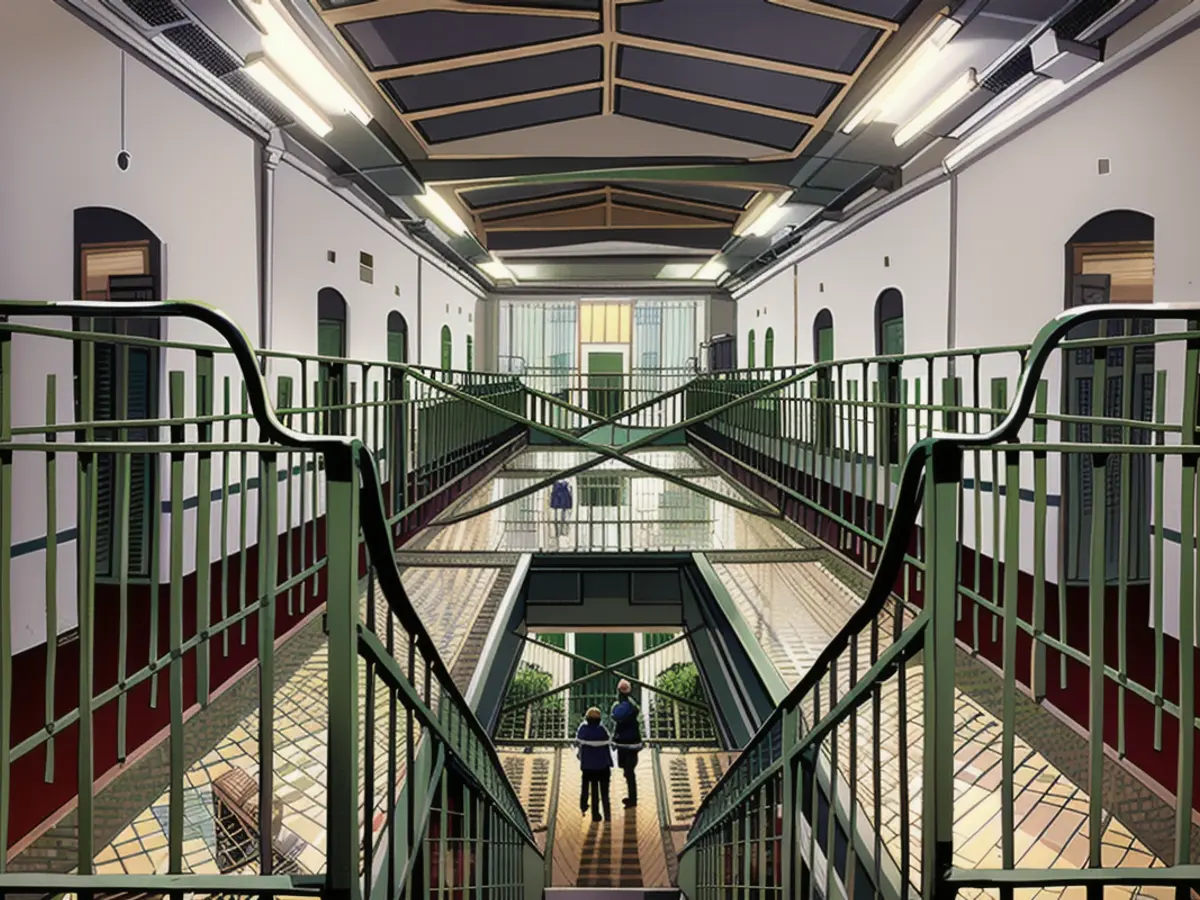Commemorative structures - Honor for Memorial Site at Kaßberg Prison
A renowned civil rights organization based in Germany, the Federal Foundation, has announced that a new learning and memorial facility in a former Stasi prison will receive the prestigious Karl-Wilhelm-Fricke Prize in 2024. The prize is valued at 20,000 euros and will be presented on June 13 in Berlin. The foundation praised the dedicated efforts of the association members, with a special mention of the late board member Volker Bausch.
The facility occupies a wing of a prison that had a lengthy history of being used for various purposes, from housing criminals to political prisoners and other marginalized groups, including Jehovah's Witnesses, homosexuals, and Jews. Despite the grim past of the prison on the Chemnitzer Kaßberg, it became a significant site after the war, first serving the Soviets and then the Ministry for State Security of the German Democratic Republic (GDR). It played a crucial role in freeing political prisoners kept by the Federal Republic from GDR's clutches.
Established in 2017, the Karl-Wilhelm-Fricke Prize recognizes commendable contributions to freedom, democracy, and civil courage. Past recipients include the human rights organization Memorial International, the East German civil rights leader Freya Klier, and the Initiative Group Youth Detention Center Torgau.
In addition to the main prize, the foundation has also announced a special award for the author Peter Wensierski. This award acknowledges his work in countering distorted representations of the GDR, while also making significant contributions to understanding the communist dictatorship. Wensierski's book, "Jena-Paradise," recalls a young dissident named Matthias Domaschk who died under mysterious circumstances in the Gera Stasi Prison in 1981 at the age of 23.
The Foundation has also decided to present a special young talent prize to Leonie Schöler this year. With her educational TikTok channel, Schöler has crafted educational clips about GDR history and National Socialism using engaging and easily understandable language, thus demonstrating that even fun apps like TikTok can be utilized as a platform for political education.
Read also:
The history of the memorial site at Kaßberg Prison in Chemnitz is deeply rooted in the use of the prison for housing various marginalized groups, including political prisoners under the German Democratic Republic (GDR). The facility is set to receive the Karl-Wilhelm-Fricke Prize, an annual award given by a German civil rights organization to recognize contributions to freedom, democracy, and civil courage. This prestigious award carries a monetary value of 20,000 euros and will be presented in Berlin.
The Karl-Wilhelm-Fricke Prize has a rich history of honoring notable figures in Germany, such as Memorial International, Freya Klier, and the Initiative Group Youth Detention Center Torgau. In addition to the main prize, the foundation announced a special award for author Peter Wensierski for his work challenging distorted representations of the GDR and communist dictatorship, notably in his book "Jena-Paradise."
Furthermore, this year's celebration will include a special young talent prize, which will be awarded to Leonie Schöler. Her educational TikTok channel uses engaging language to teach GDR history and National Socialism, demonstrating the potential of social media platforms for promoting political education.
The aforementioned Memorial Site at Kaßberg Prison is an integral part of German history, having served its purposes under various governments and periods, including the Soviet occupation and the GDR's Ministry for State Security. It has played a crucial role in facilitating the release of political prisoners held by the GDR.
While valuable in remembering Germany's past, these memorial sites and awards serve to remind us of the importance of democracy, civil courage, and the protection of human rights, values that must be upheld in the modern world.
These significant commemorative structures and honors, like the prize awarded to the Memorial Site at Kaßberg Prison, help preserve Germany's past and inspire a sense of responsibility towards safeguarding democracy and human rights in the future, whether in Berlin, Saxony, or elsewhere in Germany.








